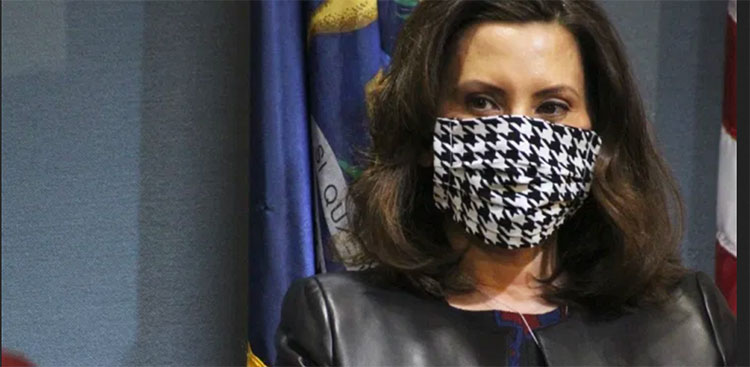Michigan Supreme Court Negates Gretchen Whitmer’s Lockdown Powers
The Michigan Governor's reign of coronavirus terror may be over.

For months, Michigan Governor Gretchen Whitmer has invoked an obscure WWII-era law as the basis for her power to keep the state locked down without consent from the legislation. The Michigan Supreme Court struck down that power today, forcing the Governor to now go to the state legislature if she intends to enforce her current lockdown which has been extended to October 27.
WHOA.
Michigan Supreme Court rules against @GovWhitmer's use of 1945 emergency powers law in #COVID19 pandemic, says 145 law "is in violation of the Constitution of our state because it purports to delegate to the executive branch the legislative powers of state government…" pic.twitter.com/sIP7Pd6X6
— Chad Livengood (@ChadLivengood) October 2, 2020
House Speaker Lee Chatfield hailed the decision via Twitter:
We will now continue our partnership with our governor. We will work through this challenge as our Constitution requires and as we always have in times past – together.
— Lee Chatfield (@LeeChatfield) October 2, 2020
According to Breitbart:
“The Supreme Court ruled today in agreement with the legislature that the 1945 law is unconstitutional,” Chatfield wrote.
“The governor had no right to extend the state of emergency over the Legislature’s objection. Our Constitution matters, and this was a big win for our democratic process.”
“Michigan is now unlocked,” Fred Wszolek, spokesman for Unlock Michigan told Breitbart News.
Unlock Michigan has been leading a petition drive to repeal the same 1945 law. On Friday, the group submitted 593,000 signatures to force a vote by the legislature, Mlive reported.
“We argued from the beginning that unlimited powers for a politician were a terrible idea. Today, we know that they are also unconstitutional,” Wszolek said.
This demonstrates the efficacy of using state judiciary to fight these unconstitutional lockdowns. Every state is different, but in many where lockdowns are prevalent, the state supreme courts can act for the people.





















